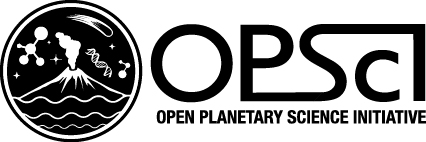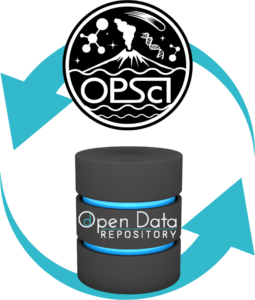ABOUT

OPScI aims to help lower the barriers on data sharing and promote the adoption of open science practices among long-tail researchers* working in scientific disciplines across NASA’s Science Mission Directorate.
*‘Long-tail’ research is performed by individual PIs and small research teams, who often produce relatively small datasets comprised of diverse types of data. This research and the associated data are a fundamental part of realizing NASA’s science goals and a key input over the life cycle of flight missions.
Supporting Long-Tail Researchers
OPScI provides specialized software , services, and data management guidance tailored for scientists in small teams or individual researchers. By reducing technical and logistical barriers to data sharing, OPScI enables more researchers to make their data openly available.
Promoting Open Science
OPScI is aligned with NASA's Transform to Open Science (TOPS) mission, which advocates for open science practices across the scientific community. OPScI seeks to foster collaboration, transparency, and accessibility, making NASA data more readily available for reuse and reanalysis.
Following FAIR principles
OPScI aligns with the FAIR principles (Findable, Accessible, Interoperable, and Reusable) as part of its commitment to open science and compliance with NASA’s policy directives, particularly SPD-41a.
Facilitating Broader Collaboration
By offering tools and approaches that bridge multiple scientific disciplines, OPScI creates opportunities for interdisciplinary collaboration, supporting the integration and accessibility of data across NASA’s diverse research areas.
A core service provided by OPScI is the Open Data Repository’s (ODR) data publishing platform. ODR is open-source, API accessible, discipline agnostic software for the rapid online publication of data without the need to write code. It is specifically designed around the needs of scientists conducting long-tail research. All OPScI projects use ODR as database framework.


The Open Data Repository’s data publisher allows researchers, graduate students, and the general public to quickly create database structures and publish data on the web. Using the drag-and-drop form designer, you can easily create your database schema and then populate it with meta-data, files, and graphs.
The mission of ODR is to make data accessible to everyone: scientists, students, and the general public. For every bit of research data that is published, the knowledge of humankind grows greater exponentially.
Functional
The current system supports many field types: integer, decimal, scientific, strings, date/time, and other data types. The default plugins can display chemical formulas and come with a base set of graphing tools.
Modern
The code base utilizes the Symfony 2 PHP framework that powers other open sources systems such as Drupal. The result is a secure, object-oriented tool set that provides a robust web application.
Semantic
As the system matures, tools for embracing the Semantic Web will be added. This will allow researchers to create data sets that validate against shared ontologies. This will allow easy collaboration and data sharing between disparate but fundamentally similar data sets.
Extensible
The platform already includes a plugin system that will allow third-party developers to create display and input plugins for the system. Long term, this system will be extended to create search, export, and data analysis tools.